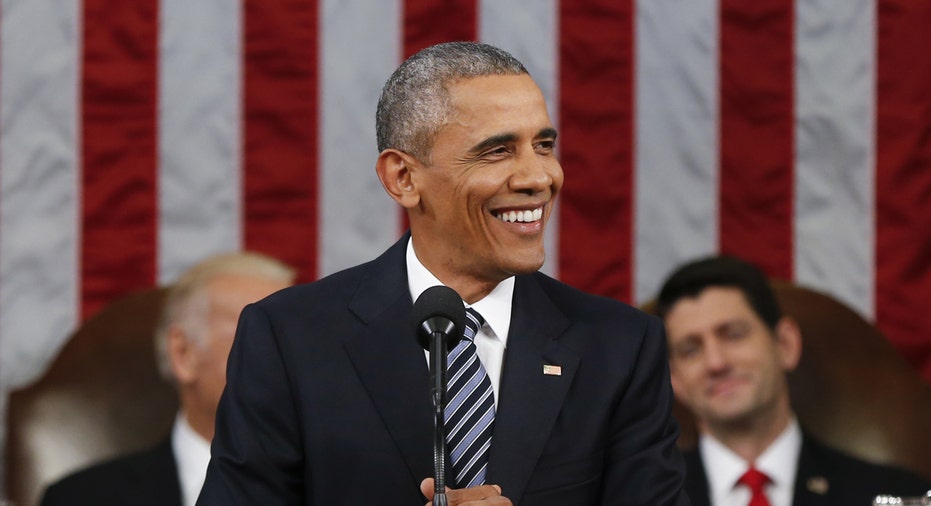The Myth of the 'Strong' Obama Economy

Strong. Durable. Those were the words President Barack Obama used this week to describe the American economy in his State of the Union speech. But that robust report will no doubt be called into question by candidates for the Republican nomination at Thursday's debate on the FOX Business Network. What's the reality?
To be sure, the American economy, thanks to the incredibly productive U.S. workforce is the largest in the world, but whether it is expanding at a rate that can lift the boats of most of us is another question altogether.
In fact, there is plenty of evidence that U.S. workers continue to suffer the ill-effects of the recession eight long years after it ended. A new report from the National Association of Counties (NACo) shows that 93% of the nation's 3,069 counties have yet to recover from the blow they suffered during the economic downturn. NAC looks at employment, the size of the economy and home values to make it's determination and estimates some counties never will recover from the Great Recession.
Most of the bounce back has been in states that were benefitting from the energy boom, such as Texas, Nebraska, Minnesota and Kentucky, among others. But with oil trading below $30 a barrel, even that lift may prove temporary.
"The bottom line is that 2015 was a year of growth, but county economies still have a long way to grow to recover to their pre-recession levels," says NACo's Brian Namey.
Even at the macro level, however, there is plenty of evidence that the recovery is yet to reach many dinner tables. Median incomes across the country have declined since the president took office. In 2008, median household incomes were $55,313 in 2014, the most recent date for which data is available, median incomes were just $53,657.
Declining incomes make it harder to pay for the rising cost of housing and education. Home prices have continued to rebound higher in most parts of the country, up 17% nationwide and 50% in go-go markets like San Francisco, where prices have surpassed their 2005 peak. First-time buyers with their weakened pay checks have been locked out of the market. Education inflation continues unabated, with college debt totaling $1.2 trillion burdening household balance sheets.
Part of the reason for anemic income growth is that the job market simply is not robust despite a 5% jobless rate. Obama boasted about the job market's recovery in his address, but it's becoming clearer that the improvement has occurred because more and more people are leaving the job market. Labor force participation is at its lowest rate since 1977, and the real unemployment rate, when you add in people who have given up looking for work and those working part time who would prefer full time work is 9.9%.
Bottom line, the U.S. economy has just completed it's 10th consecutive year of economic growth below 3%, a paltry performance. Most recoveries can boast far higher performance. So while some economic indicators look upbeat, the reality at kitchen tables across the country is far different. Republican candidates will have the challenge of promoting a different course to an electorate that is tired of spin and eager for real improvement.



















